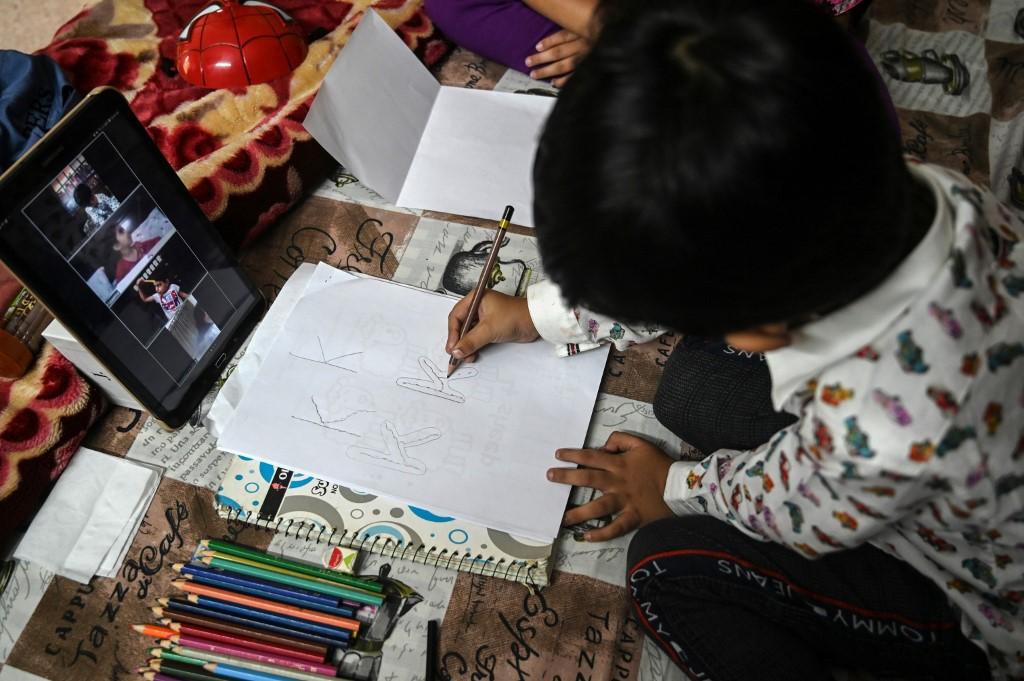Parents zoom in on screen time as pandemic pushes classes online again
Some say their children have been anxious and subdued ever since their return to the virtual classroom.
Many parents have expressed increased concern over the health of their children who are being exposed to prolonged screen time as schools close for the remainder of the academic year, shifting lessons from conventional classrooms to online tools such as Zoom and Google Meet.
One of them told MalaysiaNow that the online classes have had a negative effect on her two children, the younger of whom must now wear glasses at an early age.
Hafizah Aarif’s eldest child, meanwhile, has developed symptoms of depression as well as a sleep disorder and has to seek medical attention.
“I believe the teachers, too, face the same problem. Everyone knows that online classes pose many risks for children, especially to their health,” she said.
Hafizah worries that her children will have to continue with online classes next year, saying there is no guarantee that schools will reopen in 2021.
“The children may not be able to take this any longer,” she added. “Not only are they confined indoors, they are also saddled with a very busy schedule.”
The education ministry recently announced the closure of schools nationwide amid a fierce spike in Covid-19 cases.
Schools and other learning institutions were first shut down in March this year at the height of the movement control order (MCO). They reopened in stages beginning in June.
But a spate of Covid-19 outbreaks in schools and the reinstatement of stricter variants of the MCO forced authorities to cancel classes altogether and postpone major government examinations.
Putrajaya has said schools will continue their syllabus online.
But Hafizah said online classes have lost their novelty for children.
“In the early stage, it was fun not to go to school, to sit in front of the computer and watch the teacher,” she said.
Hafizah, who shared her grievances on social media, has been receiving nonstop comments and reactions from other parents who are in the same boat.
One of her posts which she made anonymously drew as many as 5,000 comments.
Her main concern is her daughter, who attends a highly reputed residential school in Negeri Sembilan.
“There are many alternatives to online learning, not only with gadgets.”
The 16-year-old used to be cheerful, but since classes shifted online, she has been quiet and prefers to stay in her room by herself.
She also frequently complains of headaches and has stopped using her smartphone.
Hafizah said the doctor had diagnosed her daughter with early stage depression.
“I discussed it with her, and it broke my heart when she told me that she is just too exhausted to follow online classes from morning until evening, with no rest and endless exercises.”
Hafizah is not the only parent to have noticed a change in her child during the pandemic-sparked lockdown.
Mohamad Imran Salehuddin says his 15-year-old son suffers anxiety over his online classes and worries if he will be able to catch everything the teacher is saying. He is also concerned about internet-related problems.
“From Monday to Friday, he is easily emotional,” Imran said when contacted.
Education interest group Parent Action Group for Education Malaysia, or PAGE, spoke of a need to limit the use of gadgets.
“Learning is not limited to online, there are other methods. Helping the parents with household chores is also a form of learning,” said PAGE chairman Noor Azimah Abdul Rahim.
Dr Subramaniam Muniandy, who heads the Malaysian Medical Association, said despite the shortcomings of their methods, the authorities have little choice when it comes to containing the spread of Covid-19.
He said the closure of schools was a necessary step, and a lesser evil than exposing children to the virus.
“Having said that, there are many alternatives to online learning, not only with gadgets,” he said.
Subramaniam also disagreed with a suggestion that online classes are detrimental to children’s growth, saying many have long been exposed to gadgets as seen in the popularity of social media apps such as Instagram and TikTok.
The World Health Organization recommends no more than an hour of screen time a day for children two to five years old, and no screen time at all for those below the age of two.
Subscribe to our newsletter
To be updated with all the latest news and analyses daily.
